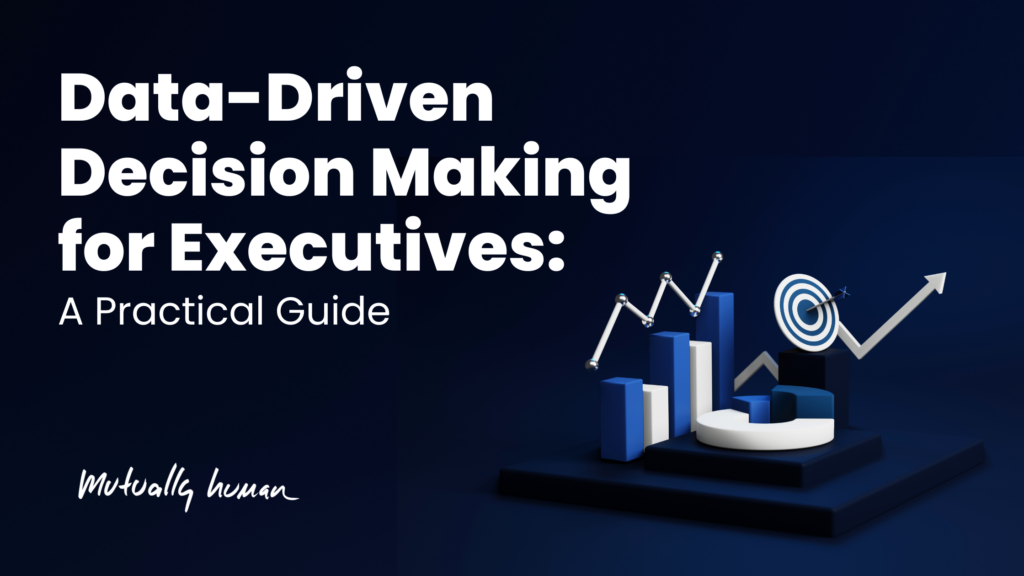Executives face the constant challenge of making informed and strategic decisions that can steer their organizations toward success. In this era of digital transformation, the power of data analytics has emerged as a critical tool for executives seeking a competitive edge. This article aims to guide business leaders through the process of harnessing the potential of data-driven decision-making to inform strategic choices at the highest levels of their organizations.
Understanding the Importance of Data in Decision-Making
Executives are tasked with navigating a complex landscape, where market dynamics, consumer behavior, and industry trends are in a constant state of flux. Making decisions based on intuition alone is no longer sufficient to ensure sustained success. Data-driven decision-making involves leveraging the vast amounts of data available to organizations today to gain valuable insights and inform strategic choices.
Building a Data-Driven Culture
To fully embrace data-driven decision-making, executives must foster a culture that values data as a strategic asset. This involves ensuring that all levels of the organization understand the importance of data, have access to relevant information, and are equipped with the skills to interpret and leverage it effectively. Investing in data literacy training for executives and employees is crucial in developing a workforce that can harness the power of data.
Identifying Key Performance Indicators (KPIs)
Executives should work closely with their teams to identify and define key performance indicators (KPIs) that align with the organization’s strategic goals. These metrics can provide a clear understanding of performance and help measure progress toward objectives. Whether it’s customer satisfaction, sales growth, or operational efficiency, having well-defined KPIs ensures that the data collected is directly tied to the organization’s overall success.
Selecting the Right Data Analytics Tools
Choosing the right data analytics tools is pivotal for successful data-driven decision-making. Executives should collaborate with their IT teams to invest in tools that align with the organization’s needs and goals. Whether it’s advanced analytics, machine learning, or artificial intelligence, having the right tools in place is essential for processing and analyzing vast datasets to extract meaningful insights.
Implementing Predictive Analytics
One of the most powerful aspects of data-driven decision-making is the ability to predict future trends and outcomes. Executives can leverage predictive analytics to anticipate market shifts, identify emerging opportunities, and mitigate potential risks. By analyzing historical data and trends, organizations can develop proactive strategies that position them ahead of the competition.
Ensuring Data Security and Compliance
As executives embrace data-driven decision-making, it is crucial to prioritize data security and compliance. With increased reliance on data, organizations must implement robust cybersecurity measures to protect sensitive information. Executives should also stay informed about data privacy regulations and ensure their organization’s practices align with legal requirements.
Fostering Collaboration Across Departments
Data-driven decision-making is most effective when it involves collaboration across departments. Executives should encourage open communication and collaboration between data scientists, IT professionals, and business units. Breaking down silos allows for a holistic approach to decision-making, ensuring that insights from various perspectives contribute to well-informed strategies.
Monitoring and Iterating
Data-driven decision-making is an iterative process. Executives should regularly monitor the impact of decisions and be willing to adapt strategies based on new data and insights. This continuous feedback loop ensures that the organization remains agile and responsive to changes in the business environment.
The era of data-driven decision-making has arrived, and executives must embrace this shift to remain competitive. By fostering a data-driven culture, identifying key performance indicators, selecting the right tools, implementing predictive analytics, ensuring data security and compliance, fostering collaboration, and maintaining a commitment to monitoring and iterating, business leaders can leverage data to make informed and strategic decisions that drive their organizations toward success in an ever-evolving marketplace.









